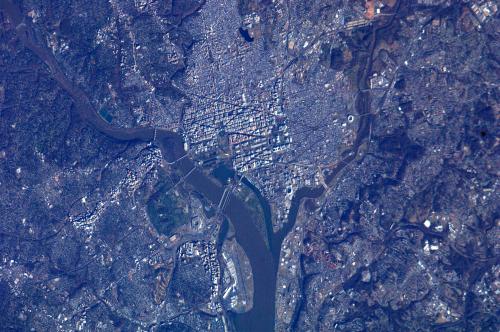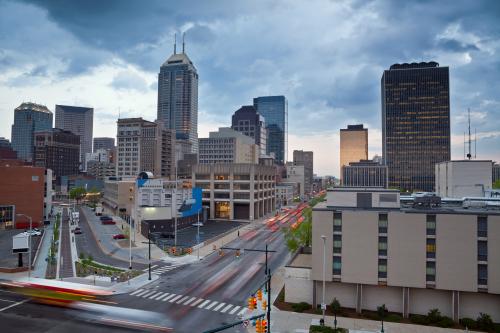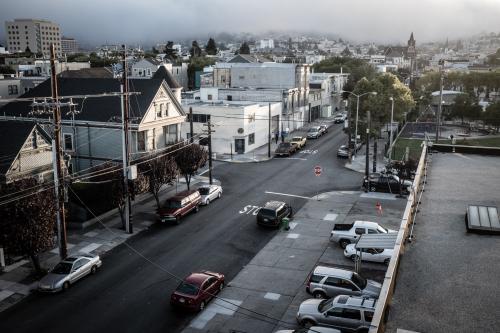When most people think of Washington, D.C., they think of its role as the seat of the nation’s government. Yet Greater D.C. is also a global economic center in its own right, buzzing with talent, strong cultural amenities, and diverse businesses that extend beyond the federal government. Like most places across the country, this tri-state region benefits from a mix of nonprofits and civic groups invested in its long-term success. The latest player on the scene is the Greater Washington Partnership, a new CEO alliance dedicated to improving the global competitiveness and quality of life of the Baltimore-D.C.-Richmond area. I recently spoke with Jason Miller, the CEO of the Partnership and a former deputy director for President Obama’s National Economic Council, on the Brookings Intersections podcast, hosted by my colleague Adrianna Pita. We discussed what regional economic strategies look like today in light of national economic and political challenges.
Below is an edited, condensed version of our conversation.
Adrianna Pita: Jason, can you talk a little bit about who is involved in the Greater Washington Partnership and what you’re driving at?
Jason Miller: So the partnership is a civic alliance made up of CEOs of the leading employers in the region. The organization in part came out of the effort to bring the Olympics to this region in 2024, not just because bringing the Olympics here would be fun, but because it was a useful way to make cross-jurisdictional decisions on big issues that matter: transportation, housing, environmental issues.
When the [Olympic] decision went a different way, there was a recognition that those issues are still here; that you had assembled a team unlike anything that had been around the table before. … The core of what we’re trying to do is to change the trajectory of the region, to go from underperforming to the performance level that we know we’re capable of, and ensuring that the growing employer community at the CEO level is a consistent voice at the table on solutions.
Adrianna Pita: Amy, can you talk about other regional economic development organizations like the Greater Washington Partnership and how they work with cities and state governments?
Amy Liu: Every region has some form of regional economic development body but they certainly are a diverse bunch. There are public-private-partnership organizations, CEO groups, and Chambers of Commerce. The best of these groups are thought leaders in the region. They are effective data centers and conveners for complex topics. They raise the capital investments through the private sector, government, and philanthropy to invest in major initiatives that can really transform a region. And they go beyond branding, marketing, and attraction strategies and focus on investing in the inherent assets of their community.
Adrianna Pita: In the national news, regional economic strategy usually comes up when some big company like Boeing, Foxconn, and Amazon is thinking about making some kind of move. Is it worth it for a region to pursue that one major anchor versus just trying to think more broadly about economic development?
Amy Liu: First of all, attracting a big company is not the way job creation is done. The history of economic literature has reinforced this point: for most states and for most metropolitan areas, somewhere between 3 percent and 13 percent of jobs come from bringing them in from out of state, depending on how you define it. The bulk of job creation in the country is from the expansion of existing firms and industries and through startups. Economic development should really be about growing from within. How do we ensure that we have the local ecosystems to leverage our existing assets? Foxconn and Amazon are distractions from what good high quality economic development is.
Jason Miller: Let me add on to what you said at the beginning, which we can’t say enough: whale hunting [i.e., attracting big companies to a region] as a strategy has tended to be an incredibly low, if not negative return, for the vast majority of communities. People often point to the one or two examples where everything went right, but for the most part, that is not where economic development efforts should be focused.
Adrianna Pita: Amy, you mentioned that a lot of cities are experiencing economic growth but most of them are not experiencing inclusive economic growth. You had a really great piece recently in which you talked about how cities have to confront their pasts in order to create economic opportunities for the future. Can you talk a little bit about what you meant?
Amy Liu: I feel like the last six months have forced an important conversation about our history and structural racism. On the other hand, we’re experiencing urbanization, technological change, globalization, and we’re moving toward a majority-minority future. If those trends are not well managed, they’re going to create wider disparities within our country, whether by class, between cities, between urban or rural areas, or within metro areas. We need to not just confront the policies that hold back progress: we also need to figure out how to prepare people for where the opportunities are going to be. That’s really what that piece was about.
Jason Miller: The hollowing out of middle-wage jobs will fundamentally undermine our long-term growth trajectory. If we can’t figure out a way to drive higher productivity growth, all we’re going to be doing is carving up a fixed pie. I think we need to simultaneously be thinking of strategies that are productivity- and economic opportunity-linked. They aren’t independent of one another. If we only focus on economic mobility and we’re forgetting about productivity – in part because we’re afraid about new technologies or global competition – it’s actually going to make the economic mobility challenge harder.
>>Listen to the entire Brookings Intersections podcast episode with Amy Liu and Jason Miller here.
Photo by Alexey Topolyanskiy on Unsplash.
The Brookings Institution is committed to quality, independence, and impact.
We are supported by a diverse array of funders. In line with our values and policies, each Brookings publication represents the sole views of its author(s).







Commentary
Growing a greater Washington: A conversation with Jason Miller
January 9, 2018